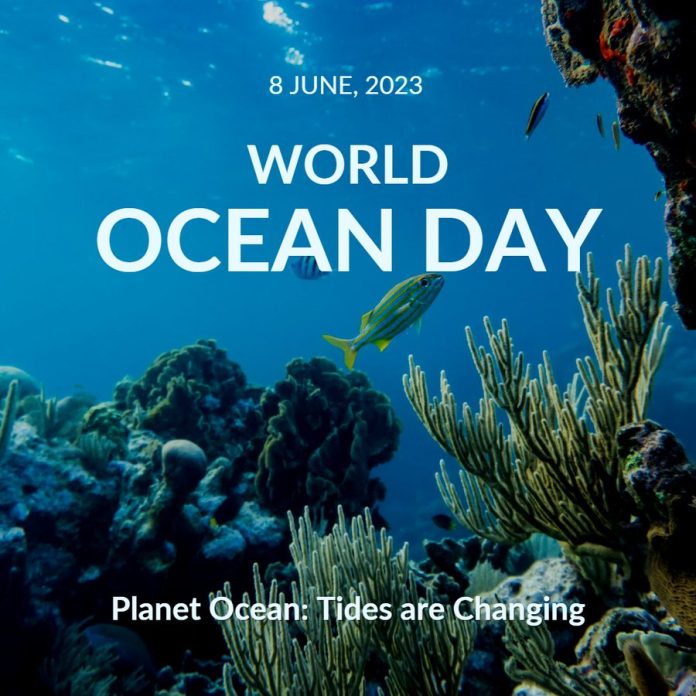The ocean is under immense pressure from climate change and human activities. Ocean warming, deoxygenation or sea level rise are altering physical and biological conditions in the ocean, affecting the composition of entire ecosystems, including their spatial structure and functioning.
Pacific Islands Countries and Territories are proactively addressing these challenges by implementing Integrated Ocean Management (IOM) strategies. These strategies aim to manage the ocean holistically, considering the interconnectedness of all aspects of the ocean ecosystem.
The ocean is an essential component of the planet’s climate. It covers 71 percent of the planet’s surface, absorbs 90 percent of the excess heat and 30 percent of the anthropogenic CO2, and provides livelihoods for millions of people globally. However, the ocean is under threat. Climate-related drivers of change, such as ocean warming, deoxygenation or sea level rise, alter physical and biological conditions in the ocean and affect the composition of entire ecosystems.
Pacific Island Countries and Territories (PICTs) are directly affected by these climate challenges. According to the Intergovernmental Panel on Climate Change, sea levels rose faster than anywhere else in the world in the Western Pacific between 1993 and 2015. Pacific shorelines may also retreat by 40 meters by 2050, jeopardizing coastal communities and their livelihoods.
To adjust to the new oceanic landscape and associated services (food production, coastal protection, carbon sequestration or tourism and recreation) impacted by climate change, PICTS are promoting a climate-responsive design and management of the ocean. Through the implementation of Integrated Ocean Management (IOM) strategies, they develop a holistic, ecosystem-based and knowledge-based approach to planning and managing the use of ocean space on both a national and regional scales.
“As climate adaptation cannot be developed on a sector-by-sector basis, it is crucial that PICTs work on the identification of climate risks and the development of ocean science to better predict climate uncertainties. As an example, “the Pacific Solutions to Save Our Ocean IOM Programme” seeks to create opportunities for ocean science to feed into decision making and to anticipate the challenges of climate adaptation.” Says Hans Wendt, IOM adviser at SPC.
Indeed, the “Pacific Solutions to Save Our Ocean IOM programme” has been implemented in 2023 to develop robust legal and governance frameworks to implement national ocean policies, raise awareness on ocean science for decision making including higher resolution climate models and work with traditional knowledge holders to identify relevant traditional non-confidential knowledge including climate change to integrate them into legal frameworks, decision support systems and tools It also provides countries with guidance on adaptation strategies and better predict shoreline changes, and key tools to evaluate, manage human activities and improve marine biodiversity.
“Robust data are fundamental to ensuring marine ecosystems are managed in an integrated manner. IOM also appears as a tool to promote ocean science for decision making in the Pacific region. To date, investing in ocean science to predict climate uncertainties is not a priority: through IOM, ocean science becomes essential for better understanding and protecting the ocean.” Explains Pierre-Yves Charpentier, Project Management Advisor at the Pacific Community Centre for Ocean Science, SPC.
Since 2019 SPC has been home to PCCOS which aims to help Pacific Island governments and communities easily access the ocean science and expertise they need to make informed decisions and to protect and sustainably manage ocean resources. PCCOS delivers integrated scientific services supporting which interconnect ocean management, ocean governance, and ocean observations.
PCCOS promotes collaborative actions involving agencies of the Council of Regional Organisations in the Pacific, which support and strengthen national and regional ocean management, through evidence-based science and traditional practices. In a context of climate crisis, the centre serves as a platform to integrate ocean science activities as part of the overall strategies to implement climate adaptation projects.” says Pierre-Yves Charpentier.
Hence, the challenges of climate change require integrated, cross-sectoral approaches to manage ocean use. IOM is an effective way support a sustainable ocean economy, to preserve marine resources and to contribute to the achievement of the United Nations Sustainable Development Goals and the Paris Agreement on climate change. As a committed partner to PICTs, SPC is proud to support their efforts to shape a resilient Blue Pacific.
SOURCE: SPC/PACNEWS


















